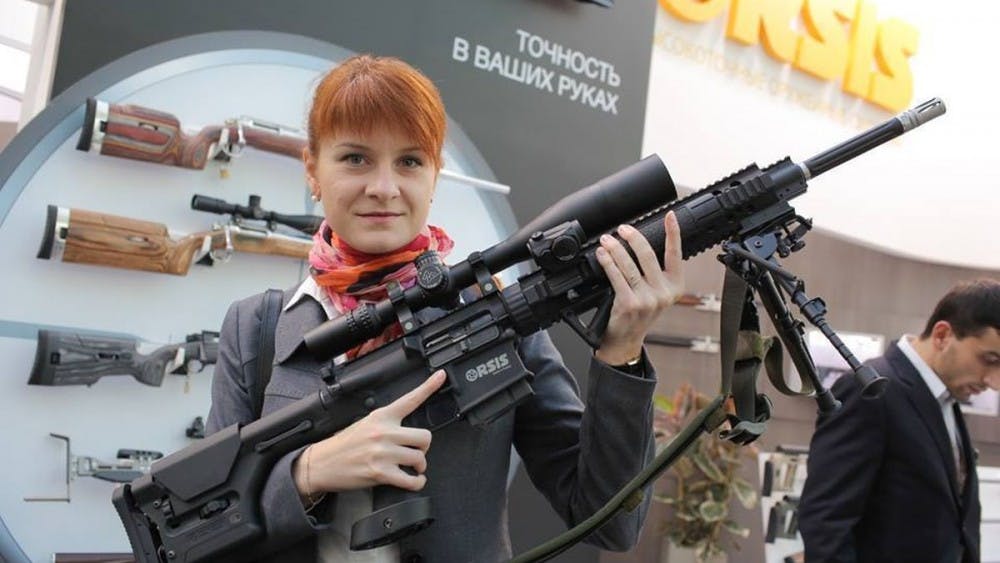At a federal court hearing Wednesday, Maria Butina, a recent American University graduate accused of acting as a Russian agent in the United States, was ordered jailed ahead of her trial after prosecutors warned she could flee the country.
In court papers released Wednesday, the Justice Department argued that Butina’s legal status in the U.S. “is predicated on deception.” Butina, a 29-year-old Russian gun rights activist, entered the U.S. in August 2016 after obtaining a F-1 student visa to attend AU. She graduated in May with a master’s degree from the School of International Service.
The court filings allege that Butina was in regular contact with Russian intelligence as part of a $125,000 years-long operation to build connections with Republican leaders, including President Donald Trump, and organizations such as the National Rifle Association and the National Prayer Breakfast. At one point, Butina allegedly offered a person sex in exchange for a job at a special interest organization she targeted.
“The defendant’s covert influence campaign involved substantial planning, international coordination, and preparation,” prosecutors wrote.
Butina worked underneath the direction of a person referred to as “Russian Official,” prosecutors said. The person is widely believed to be Alexander Torshin, a Russian bank official and Butina’s long-time mentor.
Prior to attending the University, Butina worked as a special assistant to Torshin, a former Russian lawmaker with wide-ranging ties to conservative American leaders and politicians. Torshin and Butina are both lifetime members of the NRA.
Though Butina claimed she was no longer employed by Torshin when she applied for her student visa, prosecutors said she continued to work for Torshin when she moved to Washington.
“Her false attestation on the visa application was premeditated and consistent with her actions being part of a Russian operation,” prosecutors wrote.
In court filings, prosecutors revealed that Butina and a person referred to as U.S. Person 1 -- widely reported to be conservative political fundraiser Paul Erickson -- discussed her best options to enter and remain in the U.S. Butina eventually chose to pursue a student visa.
Once at AU, she “routinely” asked Erickson, who she is believed to have lived with, to “help complete her academic assignments by editing papers and answering exam questions,” prosecutors said.
“In other words, although she attended classes and completed coursework with outside help, attending American University was Butina’s cover while she continued to work on behalf of the Russian Official,” prosecutors wrote.
The University has not commented publicly on the allegations against Butina since the Justice Department announced the charges Monday. A university spokesperson did not immediately respond Thursday to questions about whether AU, or University President Sylvia Burwell, planned to comment on the case.
Butina will remain imprisoned until her trial thanks to a ruling from Magistrate Judge Deborah Robinson. At the hearing, NPR reported that Butina’s attorney, Robert Driscoll, said Butina would willingly postpone a move to South Dakota to remain in Washington for the trial.
But prosecutors said that if Butina were to remain at liberty, the Russian government could get her out of the country, leaving the U.S. with little recourse to bring her back.





